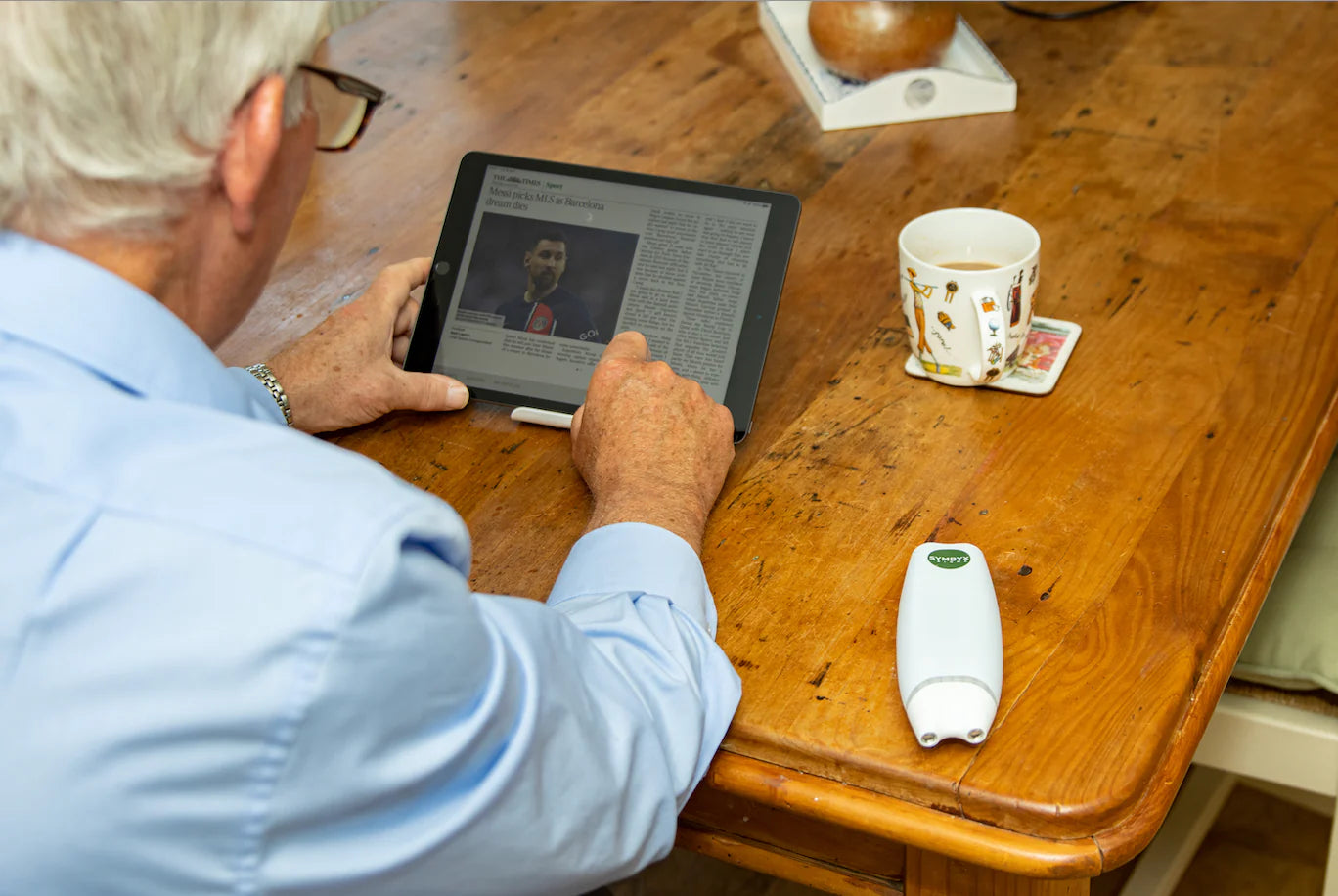Parkinson’s disease is the fastest-growing neurological disorder in the world and is now only second to dementia. The prevalence of Parkinson’s is also increasing in younger people - 1 in 5 newly diagnosed are under 50 years old and 10% are under 40 years. Australians unfortunately follow these global trends closely.
The PDCare Laser by SYMBYX is the only approved at-home laser device for the reduction of Parkinson’s symptoms worldwide. Customers have reported improvements in as little as 8-12 weeks. They include fewer falls, better balance, sense of smell, increased quality of sleep, enhanced mood and cognition.
Research is now establishing a close relationship between the brain and the gut and this linkage is critical for understanding and treating many chronic diseases. People with Parkinson's have been shown to have key Parkinson’s biomarkers in their gut sometimes up to 10 years before a positive diagnosis. The gut is effectively a ‘canary’ for early signs and symptoms. “Parkinson’s is increasingly being recognised as a metabolic disease, not a neurodegenerative one”, according to SYMBYX CEO Dr Wayne Markman.
In-line with Dr Markman’s sentiments is the greater emphasis on early detection and recognition of the many non-motor symptoms that are typically apparent years before the official diagnosis. Early intervention through Levadopa medication, vigorous exercise, healthier eating and laser light therapy would delay destructive biomarkers (misfolded alpha synuclein proteins) from reaching the brain and causing irreversible damage, according to SYMBYX and other reputable 3rd party literature. This approach also calls into question the current best-practice approach of confirming a positive diagnosis (the point at which Medicare funding kicks in) only at the stage when the first motor symptoms such as tremor appear. When motor symptoms first appear, it is widely accepted that up to 80% of a person’s dopamine activity in the brain has already been damaged.
SYMBYX light therapy works by stimulating the gut microbiome to produce a lower inflammatory environment. By placing the PDCare laser directly onto the bare skin of the abdomen, the laser stimulates the patient’s natural immune response, increases energy levels by raising mitochondrial activity, as well as stimulates the production of increased dopamine levels in both the peripheral and central nervous systems. The evidence level for each mechanism differs but what is clear through recent clinical trial evidence is that there is a material reduction of classic Parkinson’s symptoms, so laser therapy is gaining traction quite quickly.
Lucie and Paul from the central coast of NSW have been using the SYMBYX PDCare laser for Paul’s Parkinson’s disease. “Straight away his mood and sleep improved, and he stopped getting nightmares which are accompanied by involuntary movements and thrashing about. This was good for him and me! Paul is having far fewer bad days and nights now which means we have rediscovered our social life and we can do all the things we love – sailing and spending time with our family and friends. Before light therapy, Paul was having half-hour off periods every three hours. This is no longer the case. In fact, he recently forgot to take his meds at 3.30 PM and again at 6.30 PM and at 8 PM we finally realised. We couldn’t believe it! He usually is just waiting for the next pill.”
The PDCare treatment is non-invasive, painless, and only requires 20 minutes, 3 days a week. The PDCare laser is ARTG-listed and CE-marked, with extensive clinical studies already undertaken to prove the efficacy of the technology. Further studies to show the full range of benefits of light therapy are currently underway in Adelaide, Brisbane and Toronto, Canada. The PDCare by SYMBYX is available for purchase via www.symbyxbiome.com. Visit the website or reach out to the team for more information today!

